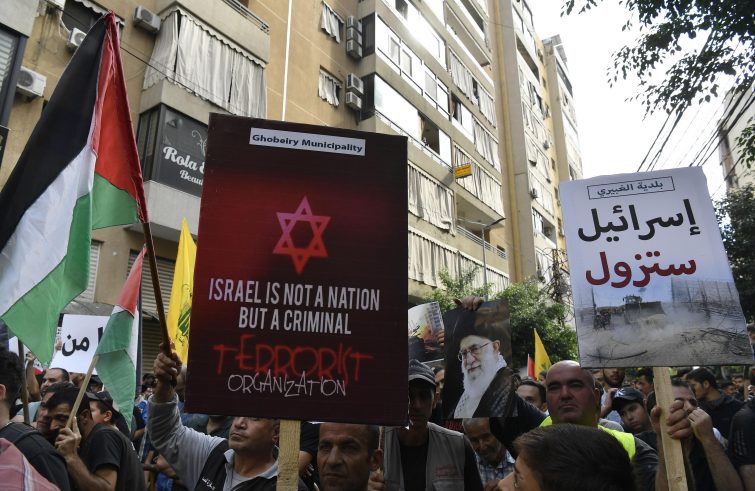
“We are facing dramatic hours. Hours of uncertainty. The decisive issue today is the attack on Gaza. If Israel launches a ground operation, there will be repercussions throughout the region.” In an interview with SIR, Fady Noun, an independent journalist based in Beirut, describes how the country is living through these hours of tension over what is happening in neighbouring Israel and Gaza. “The Lebanese people have no intention of going to war,” he says. “We are already facing a very serious economic crisis. The figures are dramatic: in the last four years, Lebanon’s GDP has fallen by 40 per cent, public debt has peaked at 280 per cent and the national currency has depreciated by 98 per cent. “With rising prices, the number of Lebanese living below the poverty line is increasing,” says Noun, adding that the free-falling economy is coupled with an endemic political crisis. “A year has passed and we are still without a president of the republic because there is no parliamentary majority to elect him. And this situation is a serious blow to democracy.”
First Canada and the United Kingdom, then Saudi Arabia, followed by the United States and Germany. The embassies are unanimous in urging their citizens to leave Lebanon immediately. “The fact that countries are advising their citizens to leave Lebanon increases the fear of a large-scale escalation of the conflict,” notes Fady Noun.
The news that Israel has ordered the evacuation of the residents of Kiryat Shmona, a northern town near the border with Lebanon, has caused great concern in Lebanon.
It was announced by the Israeli defence ministry. Kiryat Shmona has a population of over 20,000 and is about two kilometres from the border. It is a sign of growing tension. In short, it is the 315-kilometre border that separates Israel from Lebanon that is of concern,” explains Noun. This is a strategic area, not least because of the presence of the armed forces of Hezbollah, an organisation completely independent from the Lebanese government, which acts autonomously and takes its orders from Tehran. Since October 7, military operations in Lebanon have been limited to artillery exchanges in areas almost entirely evacuated by the civilian population, and until now “Hezbollah’s military engagement has been a force of deterrence rather than one of invasion or aggression.”
“That was the situation until today,” the journalist remarked. “But we don’t know how things are going to develop. Everything will depend on a ground invasion of Gaza. If that occurs, the entire front will ignite. All the Lebanese people are hoping that this will not happen.”
The Christian Churches in Lebanon stand united with the Christian Churches in the Middle East and unanimously expressed their “commitment for peace against war”, calling for “a negotiated solution to the conflict.” Cardinal Pizzaballa’s appeal was echoed in Lebanon, which observed the National Day of prayer and fasting, on October 17. At the same time, news of last night’s attack on the Anglican hospital in Gaza and the Greek Orthodox church reached Lebanon. “All these situations,” said the Lebanese journalist, “are interrelated. It means that what happens in Gaza has a direct impact and influence on Lebanon.” “The key issue – said Noun – is the ground invasion of Gaza. It’s being announced on a daily basis, and if it were to happen, it would affect the entire Middle East”, he said. “The Middle East shares a common destiny, especially the countries that border Israel, from Lebanon to Jordan to Egypt.”










